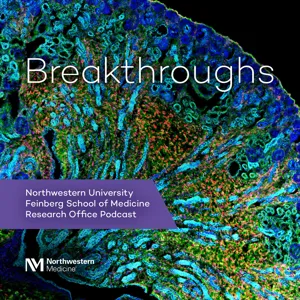Pursuing Deeper Understanding of Inflammation with Murali Prakriya, PhD

Inflammation is a common feature of many diseases and Northwestern Medicine investigators have identified how a calcium channel contributes to inflammation in the brain and lungs. This could aid in finding new types of therapeutics for inflammation-related diseases and conditions. In this episode, Murali Prakriya, PhD, discusses the evolution of this groundbreaking research in ion channels as well as his latest findings published in Nature Communications.
